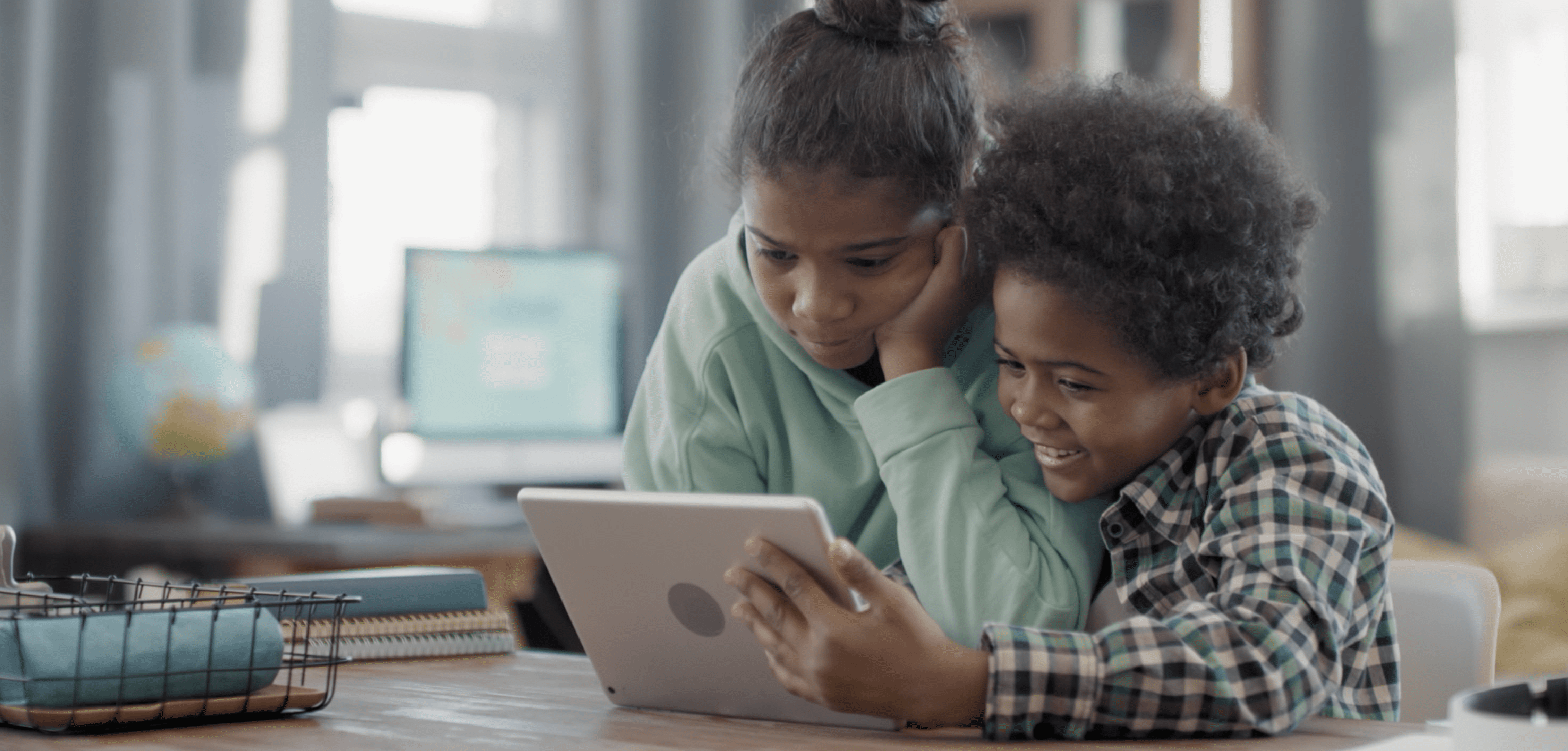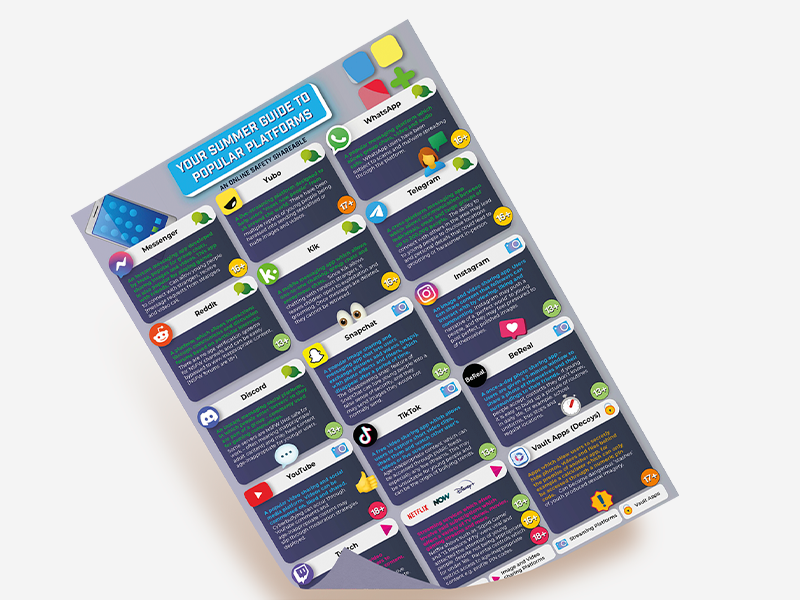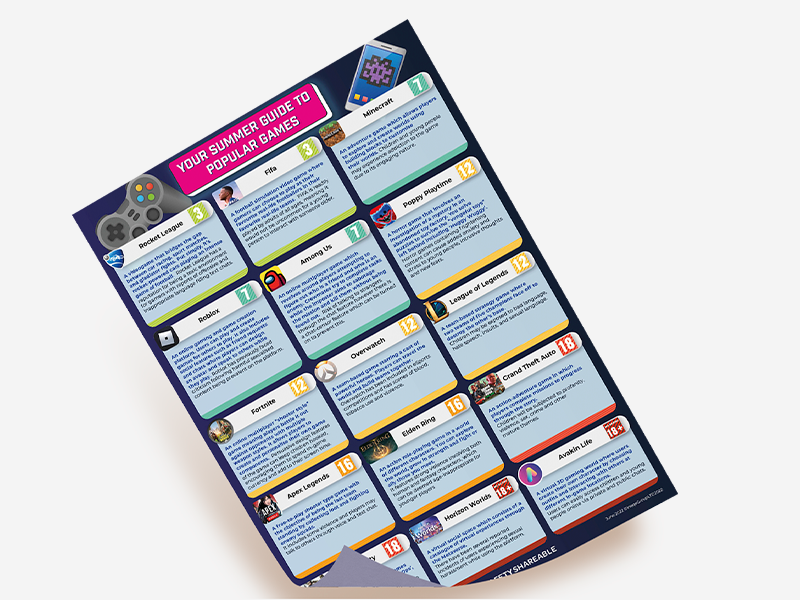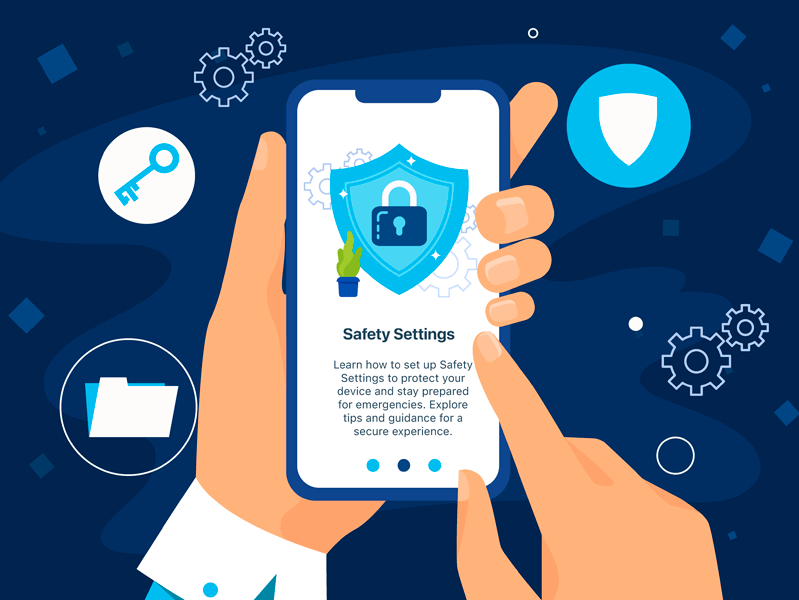Last Updated on 21st July 2022
It's summertime and holidays are well and truly upon us, whether that be at home, abroad, or just a change of scenery. While we can't guarantee sun time, we can predict high levels of screentime for our children and young people during the school holiday season.

Whether you are a parent, carer, or a safeguarding professional, this online safety article contains some top tips and advice on encouraging and supporting you to establish healthy screentime habits. It will identify popular platforms and games your child or young person may be using, and enable and utilise parental controls and safety settings. Consider it your factor 50 for screentime protection this summer!
Children, young people, and screens
Managing screentime in your household doesn't need to be about earning it as a reward. In fact, when we use screens solely as a reward, it can result in children searching for other ways to engage online without your knowledge. A shift in how we look at screens and how we manage time engaging with digital content and media is important.
Children and young people being 'glued to the screen' is not a new issue for parents, but the culture of entertainment and social interactions has changed so much over the last few years that it is certainly a much bigger challenge. Since the COVID-19 pandemic, children's lives have adapted to include more screen time as a necessity for meeting their educational, social, and entertainment needs. So how do we say, "Back away from the Xbox! Step away from the screens!" without disregarding their feelings about the devices that have become a lifeline for some children.
Screentime vs Summertime
Firstly – this is not a competition. Encouraging and developing healthy habits is key to gaining the most from our screens while maintaining a healthy lifestyle in the offline world. In doing so, everyone wins!
Believe it or not, it is not necessary to have a set amount of screentime for any individual. This can be difficult to manage (and even more difficult to adhere too!) and could cause needless arguments or stress. There will be times this summer when it suits everyone for children to have more screentime – and that is fine! If the balance shifts to include more screentime one day, it may be helpful to try and engage in more offline activities the next. A 'one size fits all' approach is not sustainable or helpful to anyone.
Have a go at completing our activities and suggestions below to evaluate how you balance your online and offline activities as a family. This might be a good opportunity to talk about the digital content and media those in your care are engaging with, and establish some consistent routines to allow for healthier screen habits all around!

To promote a better relationship with our screens and devices, we have included our Family Activity pack. This is based on the very latest research and is full of fun and exciting ways to promote healthy screen time habits – for the whole family!
Join our Safeguarding Hub Newsletter Network
Members of our network receive weekly updates on the trends, risks and threats to children and young people online.










